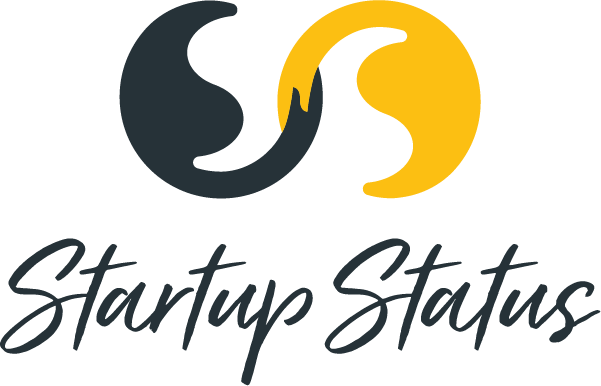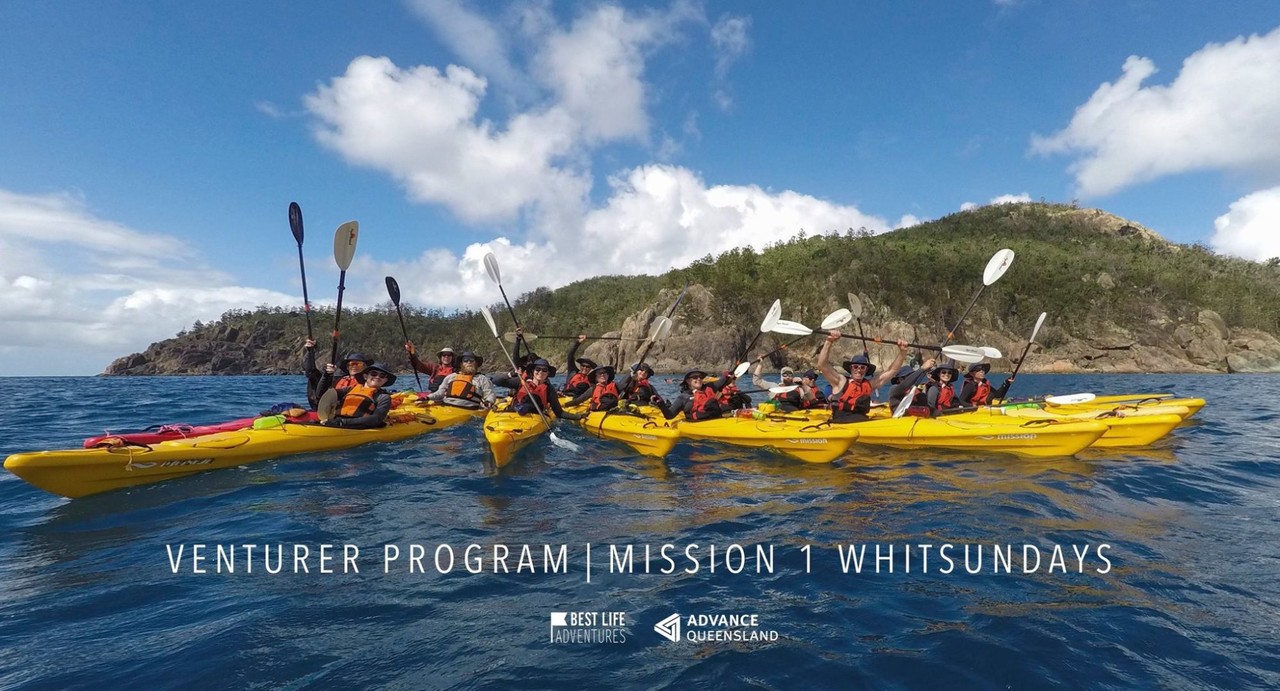“Adventurer Mission – i think you should apply”
And with this personal email invitation in May, 2017, I was introduced to the concept of the Advance Queensland Venturer Program. The Program, brain child of Queensland Chief Entrepreneur Mark Sowerby and delivered by Ben Southall and Best Life Adventures, offered to build resilience in a group of 20 or so entrepreneurs, investors, and other leaders in the innovation ecosystem. How the program would achieve this from seven days in the Whitsunday Islands remained a mystery. All I knew was that someone I respected believed the program was right for me and that I would add value to the program.
The basis for building resilience
The topic of resilience is top of mind based on my PhD research on “the role of innovation hubs in building resilience in regional communities”. It would be logical to think that resilience is developed through hardship and personal pressure. Indeed, some in the startup community questioned whether resilience might better be developed through experiencing failed startups instead of a week kayaking 50 km in the ocean.
Failure is an expensive instructor. I can personally attest to the financial, emotional, and relationship scars that come with business failure. I reflect on the negative impacts on supply chains, customers, and employee families resulting from the bankruptcy of our US-based 80-staff, $10m per year manufacturing company. Relying on failure alone is an inefficient and much too costly approach to build resilience.
Learning resilience through failure can also be unsustainable without the continuous extrinsic motivator of pain. Physical disruptions such as fires or floods are often referenced when you hear about “community resilience”. When my house flooded in the 2011 Queensland floods, we saw community come together. Neighbors joined forces to help each other recover and bounce back, demonstrating what many would consider resilience. However, now with the catastrophic driver removed, I rarely talk to my neighbors simply due to the busyness of life.
While pressure and stress may reflect whether or not we are resilient, research demonstrates that resilience is best developed through relationship, trust, and shared purpose.
The 2012 Queensland Council of Social Service’s Resilience Profiles Project notes that”
There is increasing evidence to support the theory that communities with high levels of trust in their community members and in civic/political leaders; strongly networked communities (informal supports, friends, family, neighbours); and communities where members take an active interest in their community (collective action) and have strong ties to their community, are those that are more resilient in the face of natural disaster (or indeed any hardship). It is these human and social elements in our communities that could be the key to resilience.
These “human and social elements” are is what we developed on the Venturer trip.
A need for resilience programs for ecosystem leaders
The open innovation ecosystem has both replaced and augmented traditional institutions. Structured commercialisation programs and well-defined internal R&D labs give way to loose networks of entrepreneurs, accelerators, co-working spaces and innovation hubs, investors, corporations, universities, talent developers, technicians, mentors, and service providers.
Without corporate policies to govern behaviour, this network operates under a new set of rules. Community becomes faster than contracts. Conversations begin and end with “How can I help?” Healthy competition operates alongside principles of “giving first”. The basis for this paradox is outlined by Victor Hwang and Greg Horowitt in Rainforest, a book I consider to be the innovation ecosystem manual:
Innovation, for all the huge ripple effects it can have on the world, can always be boiled down to its most basic elements: human relationships.
The open ecosystem becomes a new tribe that transcends traditional silos, breaking boundaries of class, race, religion, nationality, and gender. The authors outline the economic and social drivers, supported by psychological underpinnings of the phenomenon:
We are programmed to take pleasure in serving the greater good of our tribe, whether that happens to be the local sports team, a startup, or the human race.
The need and awareness to serve the greater good is increasing. The rapid increase in market disruptions can be just as impacting as a fire or flood. Depression, suicide, and chronic loss of earning potential can follow the demise of industry sectors, particularly in regional areas with lower market diversity.
A growing number of governments, corporations, universities, and practitioners are proactively responding to these disruptions. Leaders in this ecosystem are entrepreneurs, investors, physical and virtual space managers, program facilitators, teachers, community practitioners, policy makers, researchers, and other professionals loosely bond together by a dependency on each other’s capabilities, networks, and a shared purpose of supporting entrepreneurial outcomes.
Through shared experiences and sessions with incredible leaders including Matt Golinski, Glenn Bourke, Rob Davidson, Steve Baxter, Mark Sowerby, and Wayne Gerard, the Venturer program stepped up the development of leaders in this community to create lifelong bonds that help them work effectively as a cohesive team.
Building relationship to build resilience
Many of the leaders on the inaugural Venturer program shared a common sentiment that it was difficult to break away. Few of us had been away from online contact for more than a few days since the dawn of the Internet. Most of us had multiple projects or businesses we were working on with a steady diet of seven days a week.
I had spun up a new company the weekend before leaving, am in the process of developing the next stage of the innovation hub I manage, had recently started a commission for ecosystem measurement for Queensland, and only just returned from an ecosystem leader’s summit in Kansas City. Now is not a good time.
Which made now the perfect time. One of my big challenges through my career is an over-reliance on self. Having a vision bigger than yourself forces a reliance on others. Sharing that vision with others then makes the outcomes and likelihood of achieving that vision greater than any individual could ever achieve. This can only be achieved through trust and relationship, which in turn is developed through shared experience.
I signed up for the Venturer program without knowing what to expect, but knowing I wanted to break out of my comfort zone, shift my thinking, and connect with like-minded leaders. I got this and so much more.
The purpose of the trip was not to learn how to operate a sea kayak or to set up and break down a tent every night. We were not measured by how fast we sailed a boat or swam 400 meters (thankfully). The objective was to push ourselves, build relationship as we do these things, and do this in a novel environment that was both challenging and supportive.
My Venturer experience began with relationship, with someone caring enough to send a personal invitation. I come away with relationships reinforced, a desire to do whatever I can to help each person on their trip achieve their goals, and a belief that there is nothing that will stop us from achieving a shared purpose to impact our ecosystem for good.
The impact of the Venturer program is exponential. The resilience developed is more than each individual or even within the group. The impact scales to our regions and the leaders we are in turn developing.
The next mission is being planned now. If you are impacting the Queensland ecosystem for good, do not be surprised if you receive an email, Slack, text, or message from any number of the 19 participants with an invitation along the lines of…
Adventurer Mission – i think you should apply
You can read some further great perspectives from other participants including:
- Anne-Marie Birkill’s “The Resilience Experiment” and her follow-up “Nothing Ventured… Nothing Gained“,
- Aaron Birkby’s “What I learnt while paddling 50km in a sea kayak alongside 19 incredible people“, and
- Baden U’Ren’s “It Takes a Community to Raise a Startup“.
Huge gratitude to Ben Southall for an impacting facilitation, Mark Sowerby for the opportunity, Salty Dog Sea Kayaking and Explore Whitsundays- Sailing Adventuresfor the incredible experiences, and all the other participants for the amazing friendships.


